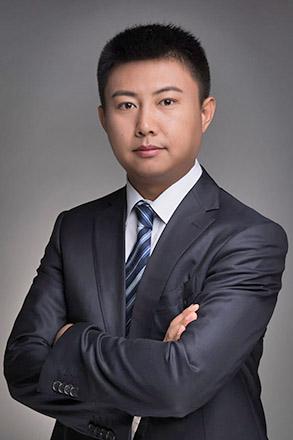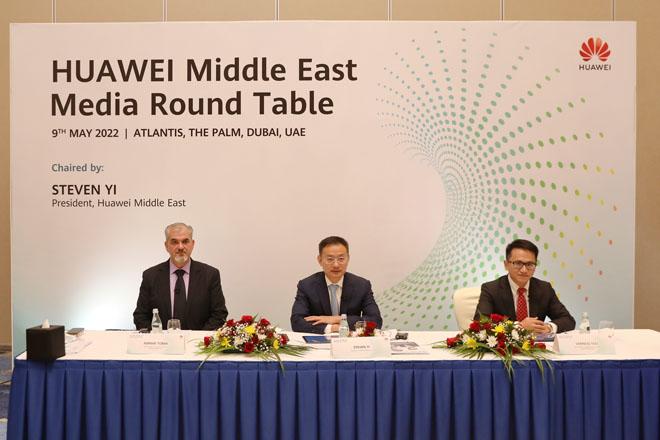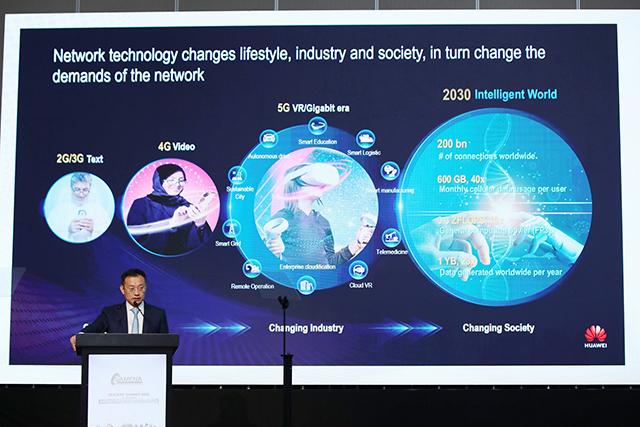You are here
Connectivity, collaboration and cybersecurity – 3 keys to Jordan's digital future
By Ethan Wang - Oct 31,2022 - Last updated at Oct 31,2022

In the modern era, businesses need connectivity more than ever to enable swift communication, greater efficiencies, and faster decision-making. Connectivity dictates how people work, how fast we transact business, and how we can better collaborate. Reliable, robust connectivity is the backbone of digital businesses. And 5G is currently the gold standard for connectivity speed.
Jordan already possesses strong ICT credentials, providing a solid foundation to build a digital economy. The ICT sector accounts for 3.8 per cent of the country's GDP, with total annual revenues exceeding $2.3 billion. Figures reveal there are more than 900 active companies in the sector, directly employing around 22,000 people. What's more, figures show that 27 per cent of tech entrepreneurs in the Middle East and North Africa region are Jordanian — even though the country accounts for just 3 per cent of MENA's population. What's more, 50 per cent of the population is under 24, with 22 per cent of that group holding degrees in IT, computer science, and engineering.
The Kingdom has a mission to reinforce these capabilities with next-generation technology under a government blueprint, Jordan Vision 2025. 5G will fast-track these developments by powering an array of next-generation digital services. For businesses, state-of-the-art connectivity allows Jordan's entrepreneurs to advance business operations, enter new markets, access more finance and attract better talent. For operators, 5G networks hold great promise for greater revenues, thanks to new customer experiences.
In the new digital era, 5G fulfills the need for access to new applications that are only accessible via advanced technologies. These include lag-free HD video meetings over wireless, smart city applications, telehealth, and remote education.
Cutting-edge applications such as the metaverse are on the rise with increased AR/VR use cases for business, government and consumer services. Autonomous mobility solutions such as self-driving cars and air taxis also wholly rely on good connectivity. For Jordan to claim its rightful place in the bold new Web 3.0 era, its ambitions must be shored up by world-class connectivity.
Building such future-proof networks requires broad collaboration. The government, the telecommunications sector and private enterprises need to join forces to ensure future technology is fully embraced, or risk getting left behind.
We are fortunate that the government strives to explore and keep abreast of new concepts to boost the burgeoning digital ecosystem, such as the Jordan Source project, which aims to encourage the growth of business process outsourcing (BPO) and information technology outsourcing (ITO) sectors to help Jordanian business capture part of the multi-billion global outsourcing business.
Another key element of the growth of a digital, knowledge-based economy is robust cybersecurity. Telecommunication networks require strong security elements built-in to ensure smooth operations. And the global nature of connectivity means we cannot afford to leave the country's networks open to attack. We must train the human talent pool in good cyber hygiene and ensure the youth possess the skills to tackle the cybersecurity challenge.
With these goals in mind, Huawei Jordan has inked an agreement with Jordan University of Science and Technology (JUST) to establish an on-campus cyber-security, artificial intelligence (AI) and 5G technology academy. Each year, the academy will train around 200 students in 5G technology, IA, ICT, cloud computing and big data, for example, via Huawei's bleeding-edge hardware and software solutions.
Huawei also recently launched public cloud services in Jordan and initiated a start-up program to support SMEs with advanced cloud services and communication platforms in partnership with venture capitalists. Jordan enterprises now have seamless access to the fastest-growing cloud services provider in the world, operating in 65 Availability Zones in 27 Regions. HUAWEI CLOUD has attracted more than three million developers, 28,000 consulting partners, 9,000 technical partners, and 19 data centres and released more than 250 cloud services, over 210 solutions, and 7,400 KooGallery products five years since its launch.
In the 5G business, in particular, Huawei has helped some Middle Eastern countries to build high-speed 5G networks and reach 11 million 5G users, including 1.3 million home users. In addition, the company partnered with carriers to explore 5GtoB services for critical sectors such as the oil and gas and ports, helping them to improve production efficiency and safety, reduce operational costs, and create opportunities for operators to enter the new blue ocean of the industry.
We have seen the rise of Jordan's technology business sector, driven by sound infrastructure, a liberalised telecom sector, geographical position and strong government support. The country has provided an excellent business environment for the last 17 years we have operated here. With advanced technologies like 5G, cloud and the fast-advancing AI field, Huawei plans to make more contributions to Jordan and look forward to an open, fair and just business environment for all enterprises.
While technology's role in advancing economic and social progress cannot be disputed, we need to ensure the strength and security of connectivity, open collaboration between the private and public sectors, government and regulators, and a local tech-savvy talent pipeline for Jordan to fully embrace the opportunities of the digital age.
Ethan Wang, CEO, Huawei Jordan
Related Articles
DUBAI - During an exclusive media roundtable held on the sidelines of the SAMENA Leaders’ Summit 2022, the top telecom industry event hosted
DUBAI — Leaders and experts from the telecommunications industry came together at this year's SAMENA Council Leaders' Summit hosted by Huawe
Plans are underway to roll out 5G in Jordan, heralding a digital-led future for the Hashemite Kingdom.


















